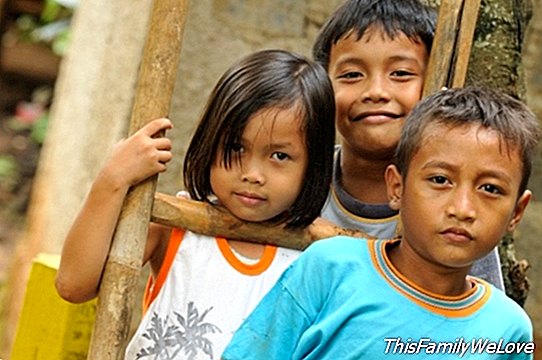Child poverty is triggered by the economic crisis

Child poverty is a reality that is increasingly present also in rich countries. Thus, according to the latest UNICEF report, up to 2.6 million children have been living below the poverty line in developed countries since 2008. A figure that has increased the total number of children living in poverty in the developed world up to 76.5 million.
The number of billionaires doubles during the crisis
According to the information contained in the report "EQUAL: Let's put an end to extreme inequality. It's time to change the rules " Oxfam (Oxfam Intermón in Spain) launches today in more than 50 countries, the 85 richest people in the world have increased their fortune by 14 percent over the last year, equivalent to a profit of 668 million dollars every day or almost half a million dollars per minute.
Another surprising fact is that since the beginning of the economic crisis the number of billionaires in the world it has more than doubled, going from 793 in 2008 to 1,645 in 2014. Oxfam Intermón warns that the increase in inequality could cause a decades-long retreat in the fight against poverty. This increase has been fueled by two drivers, according to this organization: market fundamentalism and political capture by the elites, which is the result of laws established for the interests of a few.
In Spain, in the last year, the 20 richest people in our country increased their fortune by 15,450 million dollars, more than 1,760,000 dollars per hour, and today own as much as the poorest 30% of the population (almost 14 million people ). Only 1% of the richest in Spain have as much as 70% of citizens and only 3 individuals accumulate wealth that more than doubles that of the poorest 20% of the population. As a whole, the 20 largest fortunes in Spain reached in March of this year a wealth of 115,400 million dollars.
The most unequal regions of the planet are still in Latin America and the Caribbean. There lThe richest people account for almost 50% of the region's total income, while the poorest receive only 5%. In the period of one year (between 2013 and 2014) the number of billionaires increased by 38%, an increase much higher than any other region in the world.
The increase in child poverty in rich countries
Another report, in this case from UNICEF, 'Children of recession: the impact of the economic crisis on child welfare in rich countries', has brought together a group of 41 countries of the Organization for Economic Cooperation and Development (OECD) and the European Union (EU) based on the growth or decrease of child poverty levels since 2008 in these countries. Thus, the objective was to analyze the increases in these poverty levels. In addition, this report collects data on the rate of young people who neither study nor work (NINI rate) and the perception that people have of their current economic situation.
Social protection policies against child poverty
In recent years, the income at home has decreased notably in many rich countries, a reality that, now in the present, and even more in the near future, will entail serious consequences for children and families in terms of well-being.
Children should always have a consistent back social protection network that strengthens the safety of childhood, both in a context of crisis and in times of normalcy. Now, in this context of crisis, UNICEF research is committed to strong social protection policies as the most effective method for prevent child poverty.
In this regard, as pointed out by the director of Global Policy and Strategic UNICEF, Jeffrey O'Malley, "rich countries should set an example, explicitly committing to eradicating child poverty, developing policies to counteract recessions and converting child welfare in a great priority. "
Growth of child poverty since 2008
In many countries the crisis has been linked to an important recoil in terms of the average income of households formed by families with children. In the case of Greece, these revenues decreased until reaching the data collected in 1998, which is equivalent, say the experts, to a loss of 14 years of advances in terms of income. According to this parameter, Ireland, Luxembourg and Spain lost a decade; Iceland lost 9 years; and Italy, Hungary and Portugal 8 years.
Also, in U.S the data indicate that child poverty has increased more in this last crisis than during the recession of 1982. Specifically, it has increased in 34 of the 50 states.Thus, since 2012, 24.2 million children live in poverty, a net increase of 1.7 million since 2008.
In total, 23 of the 41 countries analyzed have suffered an increase in child poverty since 2008, reaching growth rates of up to 50 percent in countries like Ireland, Croatia, Latvia, Greece and Iceland where the increase in poverty has been very rapid.
The effects of the crisis on young people
On the other hand, this report has monitored the proportion of young people between 15 and 24 years of age who neither work nor study or receive training (NINI rate). The report also includes data from the Institute of Gallup Surveys about the perception of people about their economic situation and their hopes for the future since the recession began.
These data indicate young people between 15 and 24 years old as the most affected by the recession. The NINI Rate has grown drastically in many countries. Specifically, in the European Union, 7.5 million young people They were classified as NINI in 2013.
Marina Berrio
Patricia Núñez de Arenas




